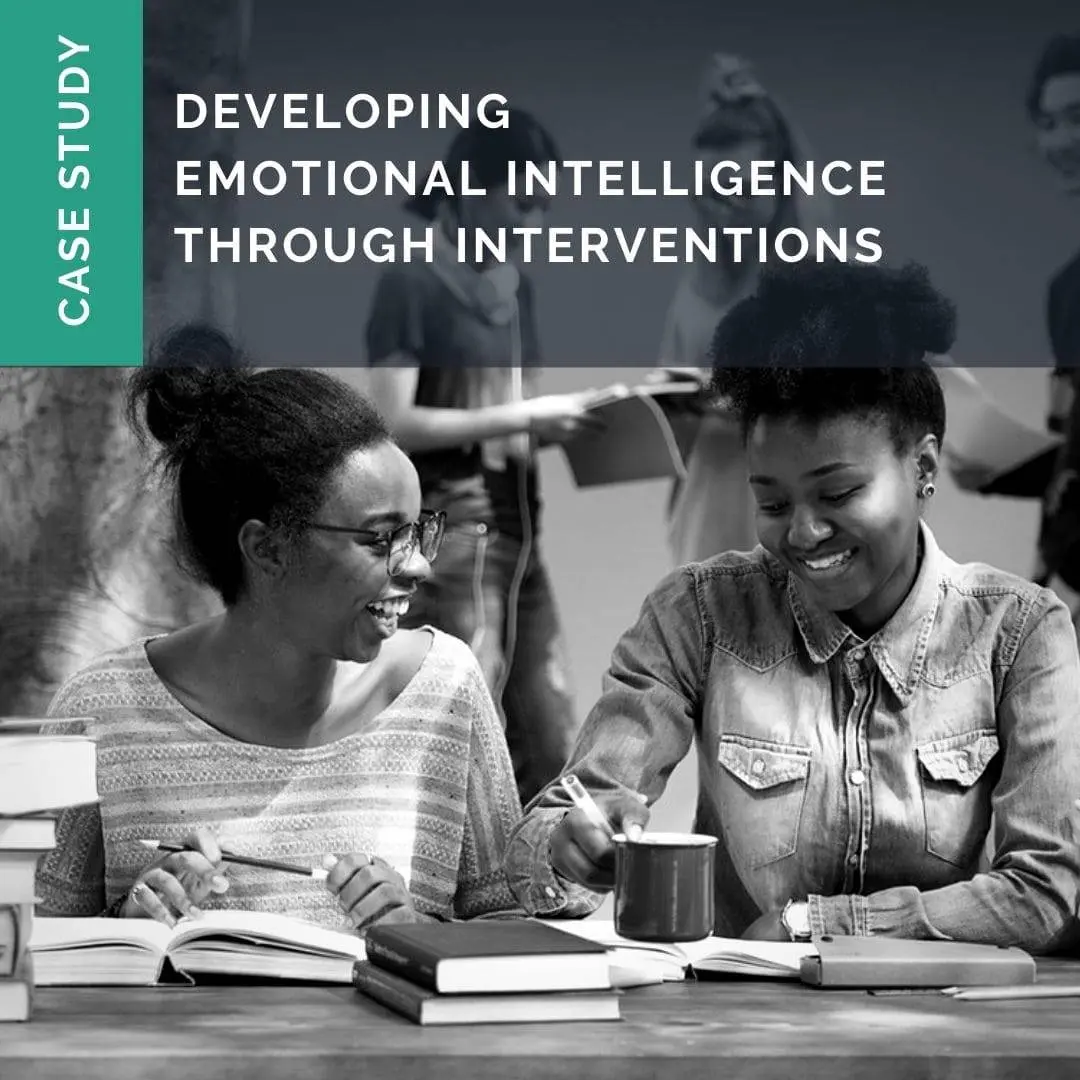Challenge
A South African foundation with a youth entrepreneurship initiative, focusses on providing opportunities to young South Africans to develop the skills and mindset needed to become accountable and high-impact entrepreneurs. One approach was a development initiative by the foundation in collaboration with JVR Academy, aimed at developing participants’ emotional intelligence (EI). The JVR Centre of Research Excellence’s aim was to determine if the interventions were effective in developing emotional intelligence.
Solution/Study
Before and after participating in the intervention, a group of 81 participants completed the Emotional Quotient Inventory 2.0 (EQ-i 2.0®), which measures a person’s level of emotional and social functioning. The results were inspected to determine if there were any changes in the group’s EI scores pre- and post the intervention.
Intervention
EI was the focus of this development initiative, because it is regarded as a vital skill necessary for entrepreneurs to operate in a volatile, uncertain, complex, and ambiguous world. This initiative included a range of intervention content, resources, and online lessons to enable entrepreneurial and personal development. The interventions were specifically designed for this initiative and followed a specific sequence over nine months. It included a series of blended learning activities, like recorded webinars, interactive feedback, and dialogue sessions, as well as access to articles, prompts, and videos.
Results
The results indicated that the total EI score, the Emotional Self-Awareness, Emotional Expression, and Decision-making scales were significantly higher after the participants completed the intervention. We also looked at the size of the differences, which showed that the actual difference between the first and second test was small but noticeable, so you would likely see it in other groups as well. The size of the difference is understandable for the duration of the intervention (9 months). One will only see systematic changes over the years, as an individual has the chance to apply and integrate the skills they learnt.
Even though the remaining EQ scales were not found to be significantly higher after the intervention, we did see a visual upward trend of scores being higher post-intervention. These results are promising for continuous development, specifically if we refer to previous research that confirmed the potential of developing EI with interventions and continuous implementation.
This study implied that the specific intervention programme seems to be effective in developing EI. Furthermore, by developing EI in these young entrepreneurs, there are clear positive implications for improving their ability to cope with owning their own business. The intervention programme can also inform future programmes or serve as a baseline when refining the current intervention. Further research will assist greatly with refinement and confirming the current findings.
Share this post
Newsletter
Get up-to-date industry news right in your inbox



